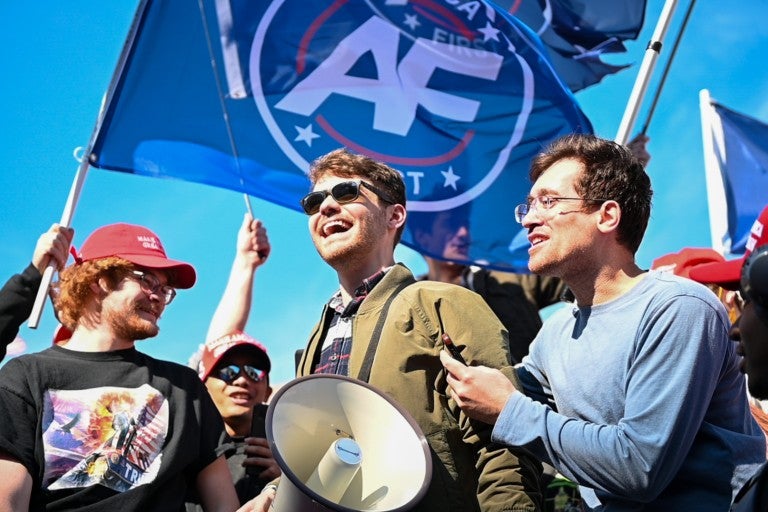April 23, 2025
The following column appeared on NJ Spotlight News.
By Danielle Cohen Schrager
Last month I boarded a bus with students from Princeton Theological Seminary and Seton Hall University to visit the U.S. Holocaust Memorial Museum in Washington, D.C.
This was nothing out of the ordinary — groups visit the museum throughout the year. But what made this trip different was that it was sponsored by a Jewish organization and was specifically for non-Jews.
I work as associate director for the American Jewish Committee’s New Jersey regional office, where a central component of our advocacy work is building relationships not just within the Jewish community but also across religions and backgrounds. We cannot combat antisemitism alone; we need every ally we can get to address the disturbing rise in Jew-hatred worldwide.
During the museum visit, our group met with Rebecca Carter-Chand, director of programs on ethics, religion and the Holocaust. In a discussion on the role of churches during World War II, she shared that many Christian institutions and leaders became complicit in the Holocaust by acts of either commission or omission, sometimes unknowingly.
We also know that there were religious leaders who quietly helped Jews, at their own peril. Though that’s not to say that antisemitism wasn’t present in the churches. After all, “Nostra Aetate,” the proclamation by Pope Paul VI that the Jews cannot be held responsible for the death of Jesus, wasn’t issued until 1965.
This year, we marked 80 years since the liberation of the Auschwitz death camp — the Holocaust moving further and further into our past. Now, with so many survivors no longer with us to share their personal stories, Holocaust education is more important than ever.
The Holocaust Education and Antisemitism Lessons (HEAL) Act was introduced in both the House of Representatives and the Senate earlier this year. If passed, it would direct the U.S. Holocaust Memorial Museum to conduct a study on Holocaust education efforts in states, local educational agencies, and public elementary and secondary schools nationwide.
This bipartisan, bicameral legislation would provide an assessment of the current standard of Holocaust education in state public school systems across the country. Once complete, this data could be used to improve curricula and ways in which public schools teach about the Holocaust. This education is critical in helping to stem the tide of hate, and in teaching students the horrors of where bigotry and bias can lead.
As important as Holocaust education is, what it means to be a Jew and to be part of the American Jewish community is about so much more than just the Holocaust. Recognizing this, the American Jewish Committee’s recently released “The State of Antisemitism in America 2024” report revealed that 84% of the public believe that students need to learn about more than just the Holocaust to better understand antisemitism and Jewish people.
So, what does all this mean for the future of the Jewish community? We need help — real help, not just platitudes. The Jewish community can’t counter the rising tide of antisemitism alone.
Thankfully, we also learned through the American Jewish Committee’s report that 69% of the public had heard the term “antisemitism” and knew what it meant. Unfortunately, more than half of survey respondents also stated they had never spoken out against antisemitism.
With that said, I was relieved to learn that 90% of those surveyed agreed with the statement: “Antisemitism affects society as a whole; everyone is responsible for combating it.” As the mom of an elementary school-aged child, I can only hope that my child’s friends agree with that sentiment as they grow up and will speak out if (when) one of their Jewish peers experiences antisemitism. I don’t mean to sound so pessimistic, but I’m angry at the state of the world we live in now.
That made the trip to the museum all the more important to me. I am grateful these students wanted to learn more about how to counter antisemitism and hate. Seton Hall Associate Professor Anthony Sciglitano, executive director of the Sister Rose Thering Fund, who also joined us, said, “I know that our students came away with a new sense of seriousness about our world and the need to resist bigotry and hatred wherever it arises.”
These students will become future Christian religious leaders and have a responsibility to use their voices and pulpits to rally against hate and bias. Many will mentor youth as part of their vocation. And what better place to start sowing the seeds of acceptance and tolerance than with future generations.
Danielle Cohen Schrager is Associate Director of AJC New Jersey.


